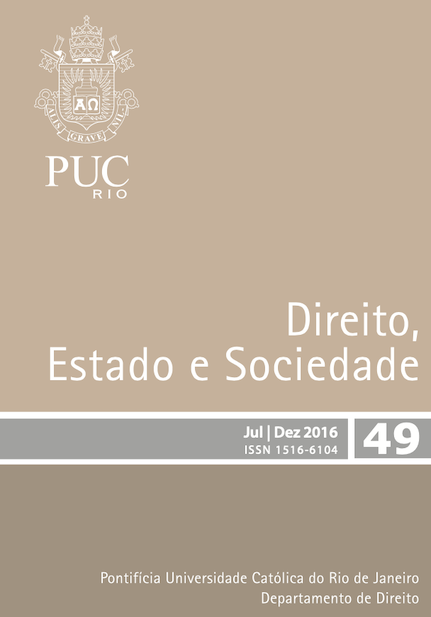Achieving a More Sustainable and Fair Society: How Individual and Collective Action Shape the Energy Efficiency of Buildings / Conseguindo uma Sociedade Mais Sustentável e Justa: Como a Ação Individual e Coletiva Molda a Eficiência Energética dos Edifícios
DOI:
https://doi.org/10.17808/des.49.790Palavras-chave:
Behavior change, Energy efficiency, Climate change, Climate justice, Sustainable development goals / Mudança de Comportamento, Eficiência energética, Mudança climática, Justiça climática, Objetivos do desenvolvimento sustentávelResumo
Abstract
The behavior of occupants in buildings has an enormous impact on their energy consumption. Despite the efforts to improve the energy efficiency in buildings, there are still many barriers that need to be overcome. Behavior change measures -to improve the energy performance of buildings- are focused on both, the design and the use and operation of buildings. If we are really committed to achieving the sustainable development objective to improve our society's well-being, special attention should be put into energy use behavior as it has been proven to be an effective way for improvement.
Resumo
O comportamento dos ocupantes em edifícios tem um enorme impacto no seu consumo de energia. Apesar dos esforços para melhorar a eficiência energética nos edifícios, ainda há muitas barreiras que precisam ser superadas. Medidas de mudança de condutas - para melhorar o desempenho energético dos edifícios - são focadas tanto no design como na utilização e operação de edifícios. Se estamos realmente empenhados em alcançar o objetivo de desenvolvimento sustentável para melhorar o bem-estar da nossa sociedade, uma atenção particular deve ser proporcionada em relação as condutas que influem no uso cotidiano de energia, uma vez que se provou ser um meio eficaz de progresso.
Referências
CIALDINI, Robert B. Influence Science and Practice. Boston: Allyn and Bacon, 2001.
EUROPEAN COMMISSION. Overcoming the split incentive barrier in the building sector sustainability. In: Workshop summary. Institute for environment and sustainability, European Commission DG Joint Research Centre, Ispra, Italy, 2014.
EHRHARDT-MARTINEZ, Karen. Behavior, energy, and climate change: Policy directions, program innovations, and research paths. In: American Council for an Energy-Efficient Economy, 2008.
FOUCAULT, Michel, The Birth of Biopolitics, trans. G. Burchell, New-York: Palgrave, 2008.
GOLDMAN, Charles; PETERS, Jane; NATHANIEL, Albers; STUART, Elizabeth & FULLER, Merrian. Energy Efficiency Services Sector: Workforce Education and Training Needs. Berkeley: LBNL, 2010.
KINGMA, Boris & VAN MARKEN LICHTENBELT, Wouter. Energy consumption in buildings and female thermal demand. In: Nature Climate Change, (5), pp. 1054-1056, 2015.
KNOX, John H., Human Rights, Environmental Protection, and the Sustainable Development Goals. In: Washington International Law Journal , Vol. 24 (3), pp. 517-536, 2015.
LUCON, Oswaldo et al. Buildings. In: Climate Change 2014: Mitigation of Climate Change. Contribution of Working Group III to the Fifth Assessment Report of the Intergovernmental Panel on Climate Change. Cambridge University Press, Cambridge, United Kingdom and New York, NY, USA, 2014.
SHEAU, Ting Low; BIN, Mohammed Abdul Hakim; WENG, Wai Choong. Promoting Energy Conservation Behaviour: A Plausible Solution to Energy Sustainability Threats. In: International Conference on Social Science and Humanity, V.5 (1), Singapore: IACSIT Press, pp. V1-376, 2011.
MOEZZI, Mithra, HAMMER, Christine, GOINS John, and MEIER, Alan. Final Report: Behavioral strategies to bridge the gap between potential and actual savings in commercial buildings. Sacramento: Air Resources Board, 2014.
PAREJO ALFONSO, Luciano. La Vigilancia y la Supervisión Administrativas Un Ensayo de su Construcción como Relación Jurídica).Valencia: Tirant lo Blanch, 2015.
PAREJO-NAVAJAS, Teresa. A Legal Approach to the Improvement of Energy Efficency Measures for the Existing Building Stock in the United States Based on the European Experience. In: Seattle Journal of Environmental Law 5, (1), pp. 340-414, 2015.
SHNAPP, Sophie, Reducing Energy Demand in Existing Buildings: Learning From Best Practice Renovation Policies, Paris: Global Building Performance Network (GBPN), July 2014.
SUNSTEIN, Cass R. Simpler: The future of government. New-York: Simon and Schuster, 2014.
WILSON Charlie, GRUBER Arnulf, GALLAGHER, Kelly S & NEMET, Gregory F. Marginalization of End-Use Technologies in Energy Innovation for Climate Protection. In: Nature Climate Change, (2), pp. 780-788, 2012.
WORLD BUSINESS COUNCIL FOR SUSTAINABLE DEVELOPMENT, Energy Efficiency in Buildings. Business realities and opportunities, Final Report, 2008.
WOLFE, Amy K., MALONE, Elizabeth L., HEERWAGEN J. and DION, J. Behavioral Change and Building Performance: Strategies for Significant, Persistent, and Measurable Institutional Change, US department of Energy, 2014.
WOODS, Laura, & BHAVIK R. Bakshi. Reusable vs. disposable cups revisited: guidance in life cycle comparisons addressing scenario, model, and parameter uncertainties for the US consumer. In: The International Journal of Life Cycle Assessment, (19) 4, pp. 931-940, 2014.
WORKING GROUP III Technical Support Unit. Climate Change 2014: Mitigation of Climate Change. Cambridge University Press, 2014, p. 714.
WORLD RESOURCES INSTITUTE & WRI ROSS CENTER FOR SUSTAINABLE CITIES, Accelerating Building Efficiency. Eight Actions for Urban Leaders, 2016.
Downloads
Publicado
Como Citar
Edição
Seção
Licença
A submissão de artigos para publicação na Revista Direito, Estado e Sociedade implica a concordância dos autores com os seguintes termos:
1. O(s) autor(es) autoriza(m) a publicação do texto em número da Revista;
2. O(s) autor(es) asseguram que o texto submetido é original e inédito e que não está em processo de avaliação em outra(s) revista(s);
3. O(s) autor(es) assumem inteira responsabilidade pelas opiniões, ideias e conceitos sustentados nos textos;
4. O(s) autor(es) concedem aos editores o direito de realizar ajustes textuais e de adequação ao padrão de publicação da Revista;
5. Permite-se a reprodução total ou parcial dos trabalhos, desde que explicitamente citada a fonte.













